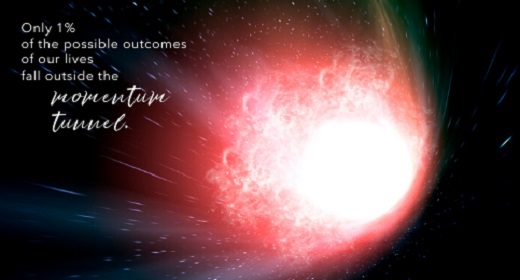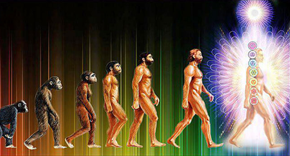Deepak Chopra MD: To have worldly success, do you have to be worldly yourself? Most people assume that the answer is yes.

The poet Wordsworth may complain that “the world is too much with us late and soon,” but modern life seems to demand total immersion in the race to the top. If you stop looking out for number one, no one else is likely to, and in a highly competitive workplace, there’s only room for winners.
In three earlier posts I’ve pointed out that the world’s wisdom traditions don’t agree with this viewpoint. The path to happiness isn’t through obeying the demands of the ego-personality, with its constant focus on “I, me, and mine.” But one must be realistic. The way to clean coronary arteries isn’t through eating prime beef and pork rinds, yet people do. Prevention that has long-term benefits is hard to practice in the face of short-term gains and pleasure.
The appeal of the conscious lifestyle – one that attends to higher values like love,
compassion, selflessness, and inner growth – must be short-term, too, or it won’t stick. Success has to be compatible with that lifestyle – and I argue that it is. The essence of spirituality is consciousness. Whether you find God or enlightenment at the end of your journey is secondary. You can’t even proceed on the journey without expanding your awareness.
There’s where the secret resides. Expanded awareness brings success. All our customary notions about the spiritual need for renunciation, poverty, and humility are, in my view, too limited and perhaps wrong. There has been a mix-up between a specific religious view, which abhors worldliness as the root of all evil, and the value of consciousness itself. It doesn’t matter if you choose to be worldly or not. What matters is the following:
– Do you enjoy a fresh stream of new solutions and insights?
– Are you in touch with who you really are, which is beyond the roles you play?
– Can you see a situation past your own point of view?
– Can you empathize with others and genuinely feel where they are coming from?
– Do you feel connected to a reality larger than yourself?
– Can you see the underlying purpose and value of your existence?
– Are you following a vision of life that can sustain you for years to come?
To answer “yes” to these questions doesn’t make you a saint – it makes you someone who has seriously walked the path of expanded awareness. Each of these things I’ve listed are of immense value to an innovator, entrepreneur, manager, or CEO. Awareness isn’t a rubber band, but it needs to be stretched. This can’t be done by force; nor can you rely on life lessons as you struggle to the top. Success ultimately depends on who you are, not what you do.
Which is why the world’s wisdom traditions speak about the need for transformation. (Please see last week’s post, which is devoted to the specifics of transformation and the brain.) At this moment, what does your life consist of? At bottom, it consists of input and output. You find yourself responding to a given situation – the input – and you do, think, or say something – the output. For the vast majority of people, the output is automatic, reflexive, and mostly unconscious. I’m not saying this to demean anyone. It’s a spiritual axiom that everyone is doing the best they can from their own level of consciousness.
If you are asked to cook a soufflé, the result will be different depending on your level of culinary skill. The same holds true for thinking, speaking, and doing. They all reflect your level of skill, although “skill” is too limited a term. Awareness is all-embracing. It includes everything you are and all that you have experienced. But the beauty of the human mind extends much further, because your awareness also embraces everything you have never thought or said or done, all the hidden possibilities that need to be awakened before you really discover who you are.
This domain of hidden potential is the richest reward of expanded awareness. When you consider that Henry Ford started out as apprentice machinist and went on to run a failed automobile start-up company after his investors lost faith in him, his immense success later running the world’s largest car company depended on a vision that kept expanding, sustaining him despite external twists of fate. Failure turns into opportunity exactly this way, by incorporating the setback into your awareness, processing it unflinchingly, and emerging with a bigger vision.
If that sounds too idealistic, consider the poison dart hidden in worldliness, or attachment to external success and failure as the sole measure of achievement. In that scheme, losing makes your awareness contract. Every loss of money, power, and status is like a loss of self. Awareness can be expanded in many ways. The most important are these:
– Meditation
– Silent reflection and contemplation
– Communing with Nature
– Seeking higher guidance
– Associating with admired people who serve as mentors and models
– Studying the great saints, sages, and seers
– Identifying with your inner self and not your external achievements
– Living by a higher vision of life, and of who you are.
– Placing importance on our own inner growth and spending time on it.
– Keeping up with the most far-seeing thinkers in your field.
– Being open to change, not fearing the unknown.
– Being comfortable with uncertainty and the rewards it offers.
Leadership: Do You Have What It Takes?
It’s not important to label any of these things as spiritual. They are derived from the knowledge of consciousness that wisdom traditions have cultivated for centuries. Even in our own materialistic times, where success and failure have apparently become a matter of life and death, if you actually encounter someone who has risen to notable success, sit down and ask them their secret. One way or another, you will find evidence of expanded awareness, even if that’s not a phrase they use. Even better, consider the things that lead to expanded awareness and test them out for yourself. The potential rewards are limitless.









































